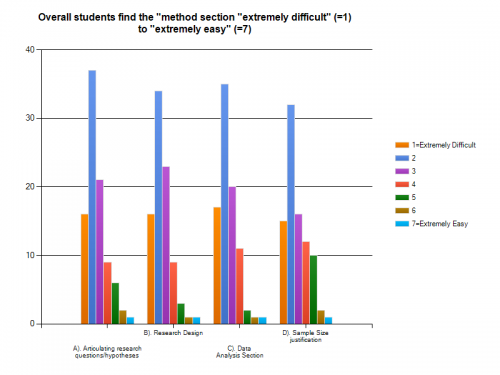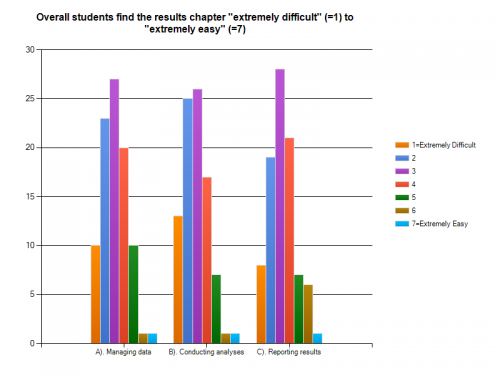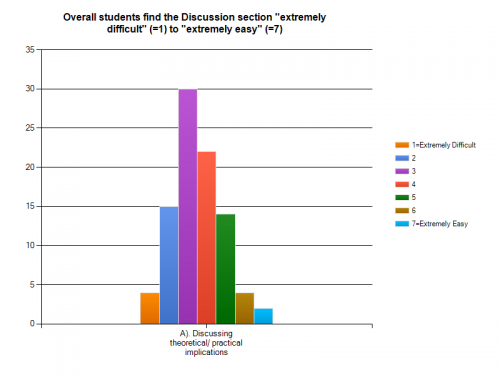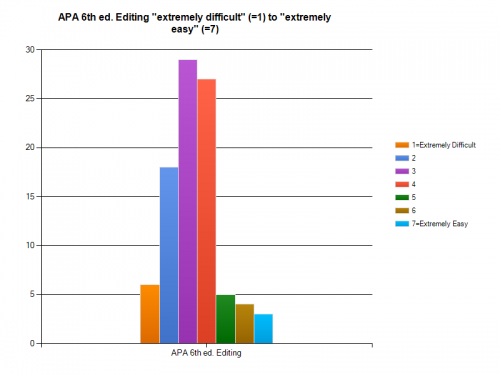Survey: Mentor’s Perceptions of Dissertation Difficulty
Ninety-two dissertation mentors from online universities participated in the survey. The dissertation mentors were quantitatively and qualitatively surveyed. The methods section questions had the lowest average responses, indicating the dissertation mentors perceive online students to have most difficulties with this portion of their dissertations. Qualitative analyses indicated that students lacked of data analysis skills, inability to determine/justify sample size, and a general lack of statistical knowledge, an inability to write at a doctoral level, lack of knowledge about APA formatting, trouble interpreting the results, trouble managing the data, and a general lack of statistical knowledge.
Mentor Survey Findings
Ninety-two dissertation mentors from online universities participated in the survey. Of them, 65 (70.7%) had their Ph.D., 19 (20.7%) participants had their Ed.D., six (6.5%) had their MA, and the remaining two (2.2%) participants had their Psy.D.. Thirty-five (38.9%) of the participants were male and 55 (61.1%) of the participants were female. Sixty-seven (75.3%) of the participants were Caucasian and 14 (15.7) were African American. Fifty (54.3%) of the participants have been dissertation mentors for 1-5 years and 15 (16.3%) of the participants have been dissertation mentors for 16 or more years. Frequencies and percentages for demographic characteristics are presented in Table 1.
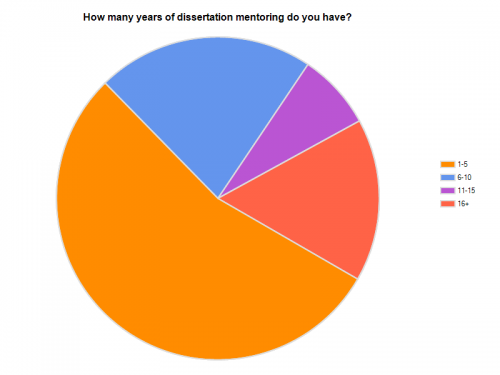
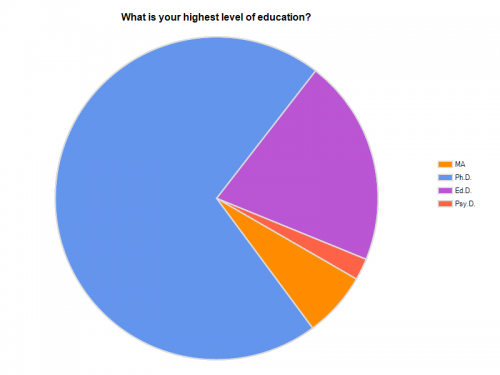
The dissertation mentors were surveyed in a Likert scale format, where a reply of 1 indicated extremely difficult and a reply of 7 indicated extremely easy. The survey was regarding their perceptions of specific difficulties that online dissertation students may experience. Frequencies and percentages for participants’ responses are presented in Table 2.
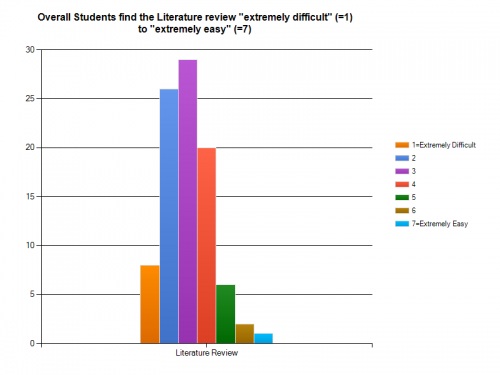
Table 3 includes number of participants, means, and standard deviations for the quantitative survey questions. The methods section questions has the lowest average responses, indicating the dissertation mentors perceive online students to have most difficulties with this portion of their dissertations. Methods data analysis had the lowest mean score (M = 2.49, SD = 1.19), indicating dissertation mentors perceived data analysis to be an extremely difficult portion of a students’ dissertation. The question regarding discussion and the practical/theoretical implications of the dissertation had the highest mean (M = 3.52, SD = 1.30), indicating the mentors tended to believe the students found less difficulty in this section of their dissertations.
Qualitative Analysis
Methods – open ended responses
When the participating mentors were asked what methodology skills their students lack there were a variety of answers reported. Some problems that recurred among the mentors’ responses were a lack of data analysis skills, inability to determine/justify sample size, and a general lack of statistical knowledge.
Results – open ended responses
When the participating mentors were asked what results chapter skills their students lacked, problems that recurred were an inability to write at a doctoral level, lack of knowledge about APA formatting, trouble interpreting the results, trouble managing the data, and a general lack of statistical knowledge.

We work with graduate students every day and know what it takes to get your research approved.
- Address committee feedback
- Roadmap to completion
- Understand your needs and timeframe

If you’re like others, you’ve invested a lot of time and money developing your dissertation or project research. Finish strong by learning how our dissertation specialists support your efforts to cross the finish line.
